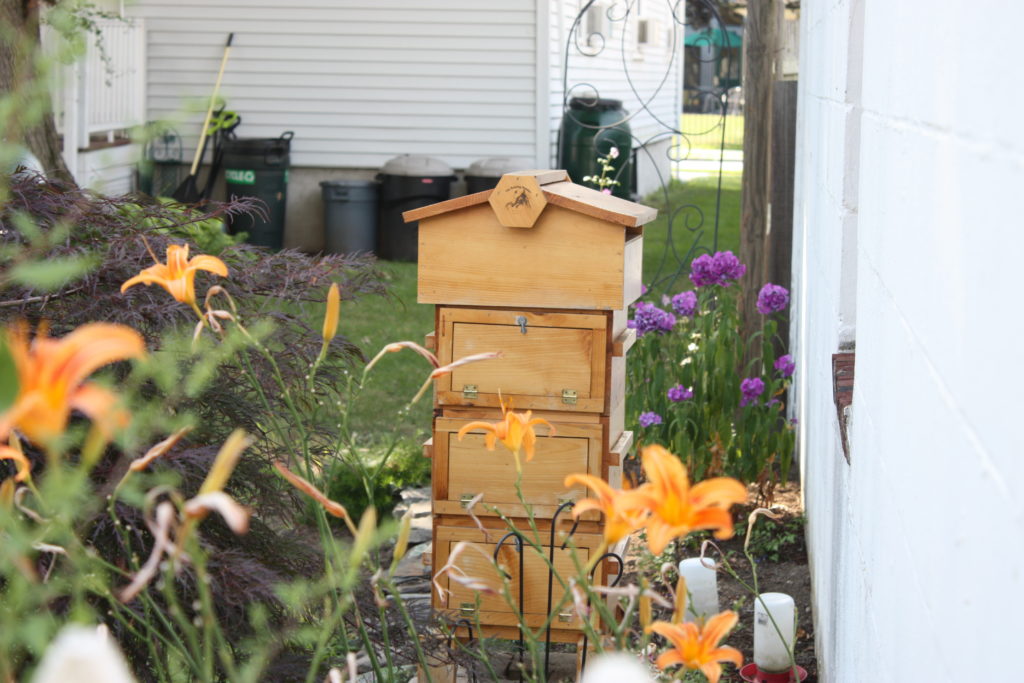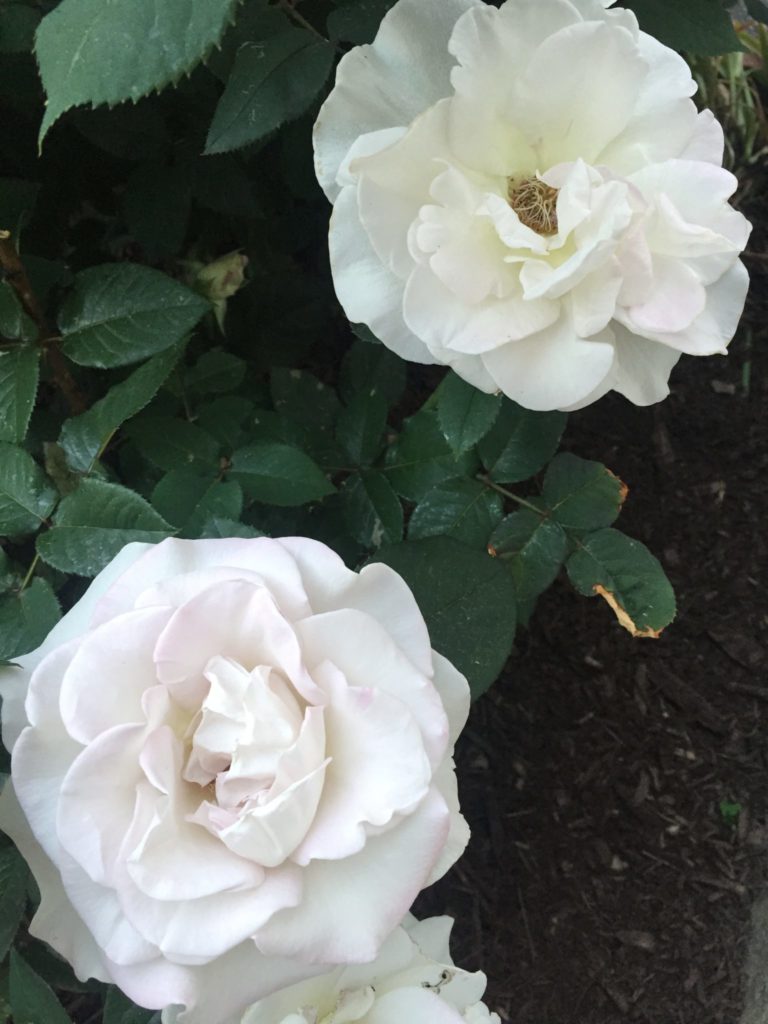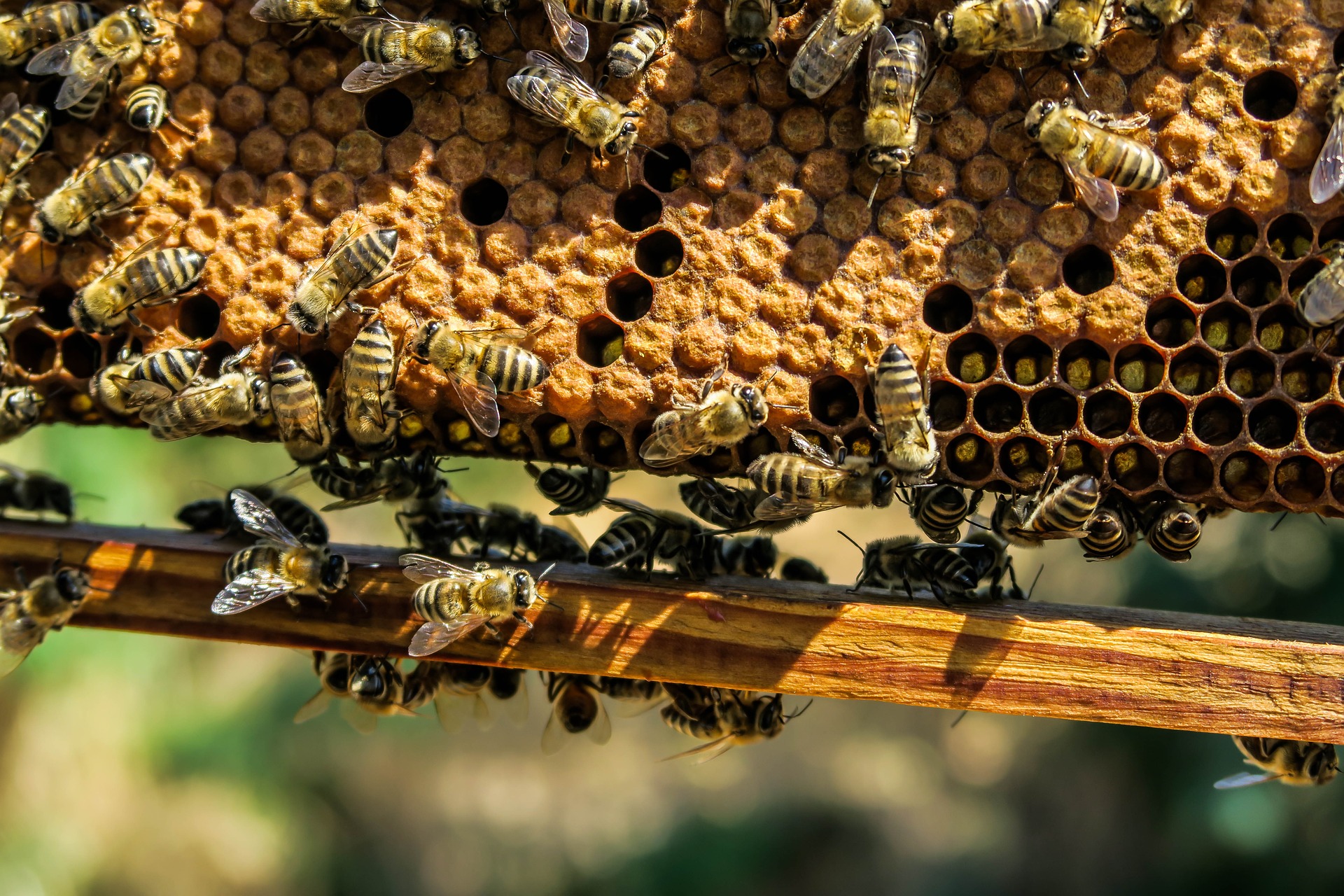As honeybee populations continue to decline, backyard/urban beekeeping is on the rise. With an estimated 120,000+ backyard beekeepers nationwide, you may find that there is a beekeeper in your neighborhood. In this post I share my experience with and explore the potentially tenuous relationship between backyard beekeepers and neighbors.
Neighbors Causing a Buzz?
Earlier this year a beehive appeared in our neighbor’s yard. As someone who is irrationally fearful of bugs and insects (aka: involuntarily screaming bloody murder when anything creepy crawly comes within a 3 foot radius), my immediate reaction was “no way – they have to go.” After all, the neighbors didn’t even give us the heads up before placing it only a few feet from the shared fence that separates our yards. Determined to figure out a way to remedy the situation (feign a severe bee allergy?!), I hopped online and started researching the local beekeeping laws. What I found when I dug deeper changed my entire perspective on the situation at hand.

Exchanging Fear for Understanding
If you Google “beekeeping neighbors” it’s clear that my initial reaction is not uncommon. As more major cities (Boston, Portland, NYC, LA, etc.) legalize beekeeping, the more interactions there will be between beekeepers and folks who are uninformed about the practice. The turning point for me was when I switched the focus of my research to the actual practice of backyard beekeeping and realized my neighbors were actually doing a good thing.
The United States’ honeybee population has been on a drastic decline – afflicted by colony collapse disorder, pesticides, disease, and habitat loss. This year, the US Fish and Wildlife Service added the Rusty Patched Bumblebee to the endangered species list. The drop has been so serious that Cheerios temporarily removed its mascot, Buzz the Bee, from Honey Nut Cheerios boxes and launched the #BringBacktheBees campaign to call attention to the plight of the bees.
Why is the loss of bees so alarming? Bees are responsible for pollinating 35% of the world’s food supply. Without bees, we stand to lose over 100 types of fruits and vegetables, certain nuts like almonds, grass fed beef & dairy, etc. Moreover, the economic impact for this crop loss in the US and the globe would be in the billions.
My search also revealed how fascinating honeybees and their products are. To begin, bees are generally docile by nature, unlike wasps and hornets (very different) which can be quite aggressive. Taking a closer look, the hive is a highly organized society and it takes some amazingly intricate communication and cooperation to produce honey and thrive. The honey that bees produce is not only a delicious natural sweetener, but has healing antibacterial and anti-inflammatory properties. In addition to honey, bees produce honeycomb, which has a variety of uses (candles, creams & lotions, leather/wood treatment, etc). The list keeps going – after all I’ve learned, it’s hard not to have some amount of respect for these creatures.
Sharing A Backyard with Bees
Surprisingly, the bees are not as intrusive as I had initially thought they would be. Our neighbors do a good job of managing their hive (keeping water out, planting attractive flowers, etc.). My husband and I spend lots of time in our yard during the warm months and apart from an occasional visitor, or two when food’s out, or when we forget to shut the screen door, we don’t have many interactions with the bees. Another major plus is that our garden is benefitting from having them around too. With my newfound appreciation, I might even consider giving beekeeping a go!

Quick Tips for Backyard Beekeepers:
- Know what you’re doing! Join a local beekeeping association, take courses, and/or shadow a master beekeeper.
- Set up hives in accordance with local ordinances and take extra measures to minimize disruptions to neighbors.
- Let neighbors know about any plans to keep a hive before installing hives.
- Offer to teach neighbors about beekeeping and be open to answering questions. A little education can go a long way in addressing and preventing issues.
- A little honey may sweeten the deal for neighbors!
Quick Tips for Non-Beekeeping Neighbors:
- Keep an open mind and open dialogue going with your beekeeping neighbor.
- Overcome fears and misunderstandings by taking some time to learn about beekeeping. Here are a few good resources to get started:
- Plant flowers, fruits, and veggies strategically to attract bees and direct them away from your house.
- Screen open doors and windows to prevent bees from entering your house.
- Let the bees be! A curious wanderer or two may make its way over to you, but stay calm and ignore it. The bee will leave once it’s done exploring.



